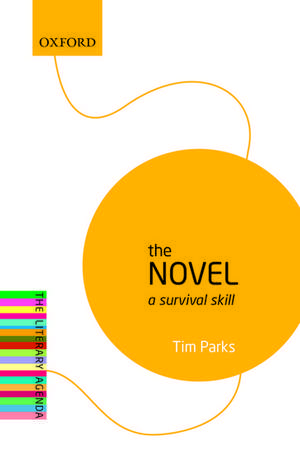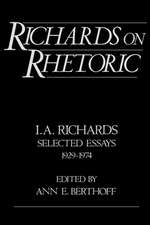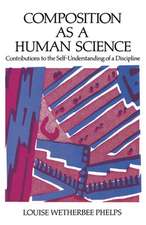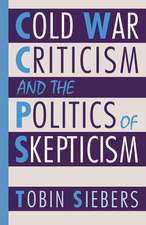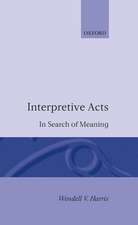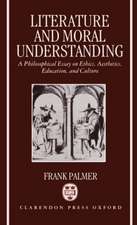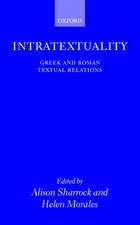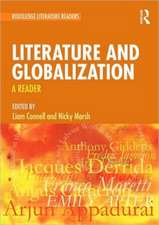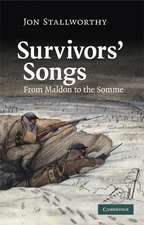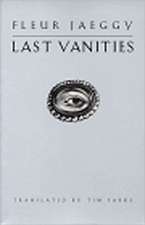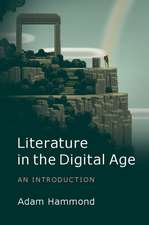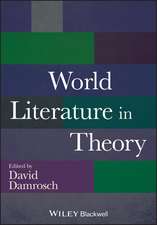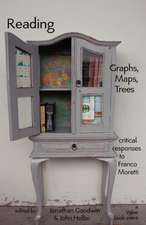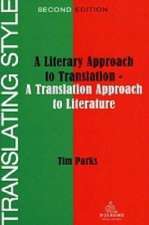The Novel: A Survival Skill: The Literary Agenda
Autor Tim Parksen Limba Engleză Paperback – 15 iul 2015
Preț: 157.13 lei
Preț vechi: 168.03 lei
-6% Nou
Puncte Express: 236
Preț estimativ în valută:
30.07€ • 31.47$ • 25.03£
30.07€ • 31.47$ • 25.03£
Carte tipărită la comandă
Livrare economică 20-26 martie
Preluare comenzi: 021 569.72.76
Specificații
ISBN-13: 9780198739593
ISBN-10: 0198739591
Pagini: 200
Dimensiuni: 142 x 195 x 12 mm
Greutate: 0.22 kg
Editura: OUP OXFORD
Colecția OUP Oxford
Seria The Literary Agenda
Locul publicării:Oxford, United Kingdom
ISBN-10: 0198739591
Pagini: 200
Dimensiuni: 142 x 195 x 12 mm
Greutate: 0.22 kg
Editura: OUP OXFORD
Colecția OUP Oxford
Seria The Literary Agenda
Locul publicării:Oxford, United Kingdom
Recenzii
an unmissable book ... The Novel: A Survival Skill, Parks' journal through the coercive emotional strategies of Joyce, Hardy, Dickens and others, is biographical and psychoanalytic criticism of the best kind.
for all its big ideas, this book is written in a highly accessible, conversational way, and, as we might expect, with a lot of personality.
A fascinating book which beautifully connects up our motives for reading and writing novels with our deepest psychological impulses.
for all its big ideas, this book is written in a highly accessible, conversational way, and, as we might expect, with a lot of personality.
A fascinating book which beautifully connects up our motives for reading and writing novels with our deepest psychological impulses.
Notă biografică
Born in Manchester in 1954, Tim Parks studied at Cambridge and Harvard before moving permanently to Italy in 1981. Author of three bestselling books on Italy, and fifteen novels, including the Booker short-listed Europa, and most recently Painting Death, he has translated works by Moravia, Calvino, Calasso, Machiavelli, and Leopardi. While running a post-graduate degree course in translation at IULM University, Milan, he writes regularly for the LRB and the NYRB. His non-fiction works include, Translating Style, A Literary Approach to Translation Problems, Medici Money, an account of the relation between banking, the Church and art in the 15th century, and four accounts of life in contemporary Italy, Italian Neighbours, An Italian Education, A Season with Verona and Italian Ways, on and off the rails from Milan to Palermo.
